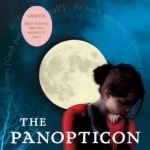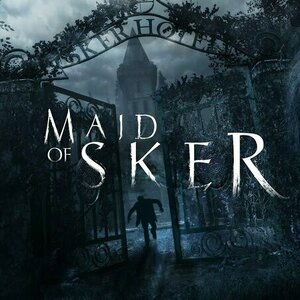
CalConvert: Pro Calculator
Utilities and Productivity
App
CalConvert is the most useful advanced scientific calculator and unit converter on the App Store!...

LDOCE Plus - Longman Dictionary + Activator
Reference and Entertainment
App
Support for iOS7 through iOS10! ● runs on your older devices too. More features than any other...
Lee (2222 KP) rated Dunkirk (2017) in Movies
Jul 26, 2017
We follow three different stories, covering land, sea and air and spanning differing time-frames. Intersecting and even overtaking each other at crucial moments, which sounds confusing but actually works very well. After being introduced to the perspective on land, which then continues to play out over a week, we're introduced to Mr Dawson (Mark Rylance) as he prepares to set off from England by yacht along with his son and another local boy, loaded with lifejackets and keen to do their bit to help bring our boys home. This storyline is set to play out over the period of one day. Finally, we're introduced to RAF pilot Farrier (Tom Hardy), whose story will play out over an hour. He's up in the sky, over the channel. As we alternate between each story, momentum is never lost and the tension continues to grow as time, and available options, begin to dwindle. On land, bombs, bullets and torpedoes repeatedly prevent a successful escape, sinking boats and ships. Up in the air, a damaged fuel gauge means that Farrier has to constantly guesstimate how much fuel and time he's got left before dropping out of the sky, while single-handedly taking out enemy planes in the process. Down on the water, Dawson and his small crew have their own drama after rescuing a stranded soldier (Cillian Murphy). Clearly a broken man who takes a turn for the worse upon realising that they're not headed for home and are in fact on their way back to the hell that he's just left behind.
Despite featuring a number of famous faces, probably the most surprising cast member of all is Harry Styles. Every time he features in a scene, and he does feature quite a bit, it kind of threw me off balance and I was just expecting him to cock the whole thing up. Luckily he doesn't. This is a truly breathtaking movie, with no over the top CGI or gore and with everyone at the top of their game. Perfectly ramped up tension, accompanied by an intense musical score from the fantastic Hans Zimmer. The dogfights, featuring real spitfires filmed over the English Channel, are also incredible with the roar of their engines and bullets flying. The movie does an amazing job of fully immersing you in this pivotal moment of history. It's truly edge of seat stuff throughout. Incredible.

Earthquake+ | Alert,Map & Info
Weather and News
App
Custom Alerts and Custom Filter are now available FREE of charge!!! •••• More than 50,000...

Till the Trumpet Sounds Again: Volume 1
Book
This is a story of soldiers at war against the background the two battalions of the Scots Guards who...

DioDict 3 English – Vietnamese Dictionary
Reference and Education
App
DioDict English-Vietnamese Dictionary • Based on the English dictionary by Lac Viet, the most...
Kirk Bage (1775 KP) rated The Last Dance in TV
Aug 6, 2020 (Updated Aug 6, 2020)
Basketball for me has never really been a thing. To be honest, I barely understand the rules beyond the basics. It just wasn’t something that was on British TV that often as I grew up, the Olympics being an exception. The skill level (and height above Sea level) needed to be good enough for NBA glory does not escape me though, and neither has the exceptional career of Michael Jordon, who is a clear contender for greatest sportsman of all time, in any sport.
What I do enjoy though is the drama of over-coming hurdles and records against all the odds. The underdog story really appeals to me, as does the story of an older athlete doing it one last time, when no one thinks it’s possible. The Last Dance is exactly that. But not told by actors in a Hollywood way, like the wonderfully under-rated Miracle starring Kurt Russell. This is a documentary, in ten parts, with the real guys, and some of the most comprehensive archive material you’d ever want!
In theory, the tale is about the whole team, and their final fling at winning a title before knowing the aging gang would be disbanded, with the key figures forced into retirement. But, it is about Jordan, of course it is. And as a document of a rise to fame, and how the man responded to that fame and increased pressure, it is simply the best sports documentary yet to be made.
Told in parallel timelines of the final year juxtaposed with the backstory of the previous 20 years, it shows in exquisite detail how a franchise was built, maintained and taken to the heights of being the greatest ever to play the game. There are tantrums, fall outs, walk outs, no shows, injuries, and some mind-bending successes riding on single moments of genius.
The main voices of Jordan himself, as he sits in retirement with a cigar and a single malt, Scottie Pippin, and bad boy Dennis Rodman, are in parts fascinating, eloquent and revealing. Even after many years have passed, the emotion of big moments and issues is still fresh. We see the joy, the pride and the exhilaration, but also the regret, the grudges and the pain. It shows every angle of what being an athlete at the very top means, and exposes what kind of mentality you have to have to be that person. To be a champion.
As with me, it really helps with the cliffhanger drama of it if you don’t remember, or never knew at all, the result of that “last dance” season in ’98. It also helps if watching sport raises the pulse, but I wouldn’t say it is essential, as it all plays like an ten part series full of drama, betrayals and gasp out loud moments. Ten hour long episodes is a lot. But this incredible production never out stays its welcome. Some acheivement, and testament to what a charismatic figure Jordan was and is on the context of sport history.
Of course, not every hero is a hero every minute of his life. And that is my final reason to recommend it. See for yourself what kind of personality virtual gods like these invent for themselves. Utterly compelling TV.
Bob Mann (459 KP) rated Saint Maud (2020) in Movies
Oct 6, 2020
Maud (Morfydd Clark) is a palliative nurse looking after ex-choreographer Amanda (Jennifer Ehle). Maud is extremely religious and feels God move in her... regularly. Acting on His guidance, Maud sets out to save the soul of her ailing bohemian charge. But is Amanda beyond reach, and how will the zealot-like Maud react to that rejection?
Morfydd Clark appears so young in this film that you would think this was her debut film. But she's actually 30 years old and has quite an impressive filmography already. Although this is her movie-lead debut, she's had a substantial part alongside Kate Beckinsale in the excellent "Love and Friendship" and smaller parts in "Crawl", "The Personal History of David Copperfield" and the fun "Pride and Prejudice and Zombies". She's likely to get more worldwide exposure soon as a young Galadriel in Amazon's new version of "Lord of the Rings".
As Maud she is simply superb - expressing such a range of joy, hurt and despair that you must think a BAFTA Rising Star nomination should be on the cards.
Clark is ably supported in the leading role by the splendid Jennifer Ehle, still so memorable to me as Elizabeth Bennett from the BBC's "Pride and Prejudice".
Scarborough is also a star of "Saint Maud". The Yorkshire seaside town is another star of the movie. Clearly filmed before lockdown, the rainy and windswept resort looks bleak and unwelcoming. And that's before Covid! Many of those struggling bars and amusement centres, as in other resorts all around the UK, are now on their last legs.
Adam Janota Bzowski supplies the impressively claustrophobic music, which deserves recognition. A scene with Maud, flicking a lighter rhythmically in time with the sonorous beat, is a masterpiece in musical choreography and editing (by Mark Towns).
At the heart of this horror-thriller is whether, following a Dawkins-style argument, fervent religious followers are less insightfully correct and more mentally unstable and misguided. When is the voice of God just the voice in your head? And how would you tell the difference anyway? Piecing together the plot and motivations of Maud was intellectually challenging and rewarding.
I always get a little tense and nervous when I see the word "horror" on a movie bill. I am NOT a great horror fan! But for me, as a 'horror movie', "Saint Maud" is of the 'horror-lite' variety. Highly watchable, it builds more in the way of creeping dread than cheap shocks. There were only a couple of jump-scares (but for me, the one in the finale was a doozy!).
A BBC interview with Rose Glass I just saw says she relates Maud's relationship with God as like many people's relationship with social media. Always looking for support, guidance and affirmation. Interesting.
This is also an obviously female-led picture. All the men are complete tools. no, really, literally they are. It makes me feel ashamed to be among their number.
Overall, "Saint Maud" is a minor classic. I didn't go in with great expectations of this one, but I was pleasantly surprised. As a small British movie, it packs a punch significantly above its weight. When I came out I was at about a 7* rating. But this is one that really stayed with me, and I've subconsciously thought about little else all day. So for that reason I am going to escalate my rating to something more appropriate.
You might struggle now to see it on the big screen, but if you can do so, it comes with a recommendation from me. I think this one could REALLY be a "Marmite film".... so if you see it, let me know what you thought with a comment on One Mann's Movies here https://rb.gy/9k93ck . (Thanks).
Eilidh G Clark (177 KP) rated The Panopticon in Books
May 13, 2017
At the beginning of the novel, the fifteen-year old Anais is governed by the state. In contemporary British society, a child under the age of sixteen, regardless of her social situation is, by law, governed by an adult/s. Anais has lived her life in the care system with the exception of a short period in which she lived with an adopted mother. It is for this reason that she is able to see society from outside of the family unit. By creating the motherless child, Fagan presents Anais as the ‘other’ from both a societal perspective- ‘communities dinnae like no-ones,’ and from the viewpoint of the protagonist, ‘What they really want is me dead,’ (TP, p.23). Without a family, and through a lack of legitimate information regarding her birth mother, Anais believes that she was created in a lab:
I’M AN experiment. I always have been, It’s a given, a liberty, a fact. They watch me. Not just in school or social-work reviews, courts or police cells – they watch everywhere. […] They’re there when I stare too long or too clearly, without flinching. […] They watch me, I know it, and I can’t find anywhere any more – where they can’t see, (TP, Prologue).
Note that in the above quotation, the protagonist describes her assumed identity as a ‘liberty’. Liberty, in this case, means freedom from the oppressive nature of the family. Although Anais desires the nurturing aspect of the family, ‘I just want my mum,’ (Tp, p.269), her lack of family exposes her to the nature of contemporary society as a constant monitoring of civilians. In the above quotation, the repetition of ‘they’ suggests that she feels outside of the norm. The most important aspect of the above quote however, is that it is told from the protagonist’s thoughts. While Fagan gives Anais a certain amount of autonomy through both the first-person narrator, and the vernacular, the reliability of the narrator is increased by presenting the characters inner thoughts. While this limited autonomy is important, full autonomy is restricted by age. Bever suggests that ‘the capacity for individuals to become autonomous seems radically dependent on the contingent historical circumstances and societies into which they are born. Anais’ awareness of herself as the ‘other’ allows her an insight into the oppressive role of society, which is normally hindered in childhood due to the role of the family and it’s teaching of norms and values.
The sense of otherness can also be looked at in regard to Scotland and its role within the UK. The UK is a family of four countries under one state. Regardless of Scotland’s devolution, it has still to comply with a large amount of UK policies. Scotland has different values and goals to that of the UK making it ‘other’. With a different cultural identity to its neighbours, many Scottish citizens are seeking independence to protect its dwindling identity, whilst for others, independence is political.
Anais’ awareness of social control causes her a feeling of shrinking. This, according to her social workers is an identity problem:
Fifty odd moves, three different names, born in a nuthouse to a nobody that was never seen again. Identity problem? I dinnae have an identity problem – I dinnae have an identity, (TP, p.99).
Anais’ reaction in the above statement describes her lack of knowledge of her ancestry. I would argue that her identity is forced upon her from the fifty-one times that she has moved home, the care system, the solitary time in which she was adopted, the relationships she has had - both female and male, her friends but more importantly, from the unreliable account of her birth from the monk in the metal institution. The lack of family does not alter the fact that she is alive, and that all the fragments of her past make up an identity. For Anais, ‘Families are overrated […] ‘I umnay fooled. Not by families,’(TP, p.63-64). Like Anais, Scotland’s identity is ambiguous. Independence will allow Scotland political autonomy, however, within a global economy, Scotland still has limited autonomy. As culturally ‘other’ however, Scotland has already achieved autonomy with or without a state through its language, its people and its traditions.
Fagan demonstrates the difficulty of total autonomy though Anais and the birthday game, a game in which she creates her own identity. When she turns sixteen years of age, Anais is free from societal care and flees from her imprisonment, ‘I am Frances Jones from Paris. I am not a face on a missing-person poster, I am not a number or a statistic in a file. I have no-one watching me, […] I−begin today,’ (TP, p.323-324). ‘I’ suggests singularity and is still opposite to ‘them’ or ‘we’. Autonomy is therefore, ambiguous; Anais is still living within the same system under a false identity, she is therefore, segregated from everyone that she knows. Moreover, by changing Anais’ name to a name that ‘means freedom.’ (TP, p.323), Fagan is pointing out the difference between freedom and autonomy. Freedom is an emotive word, and there are two concepts of freedom – freedom from, which in Anais’ situation means freedom from the system of observation. Freedom to, however, is more problematic as Anais can never be free from the neoliberal system of rules and law – as Scotland would see in the case of independence. I would therefore conclude that Anais/Scotland has always has limited autonomy through cultural identity and history. I believe autonomy can only reside within the system through cultural and individual imagination and not out with it.
What does this mean for Scotland? If Scotland is part of the global community, can it become an autonomous nation? Is there a solution or should Anais/Scotland accept that cultural autonomy is imagined or self-contained. Can a collective identity and imagination change the political system? Finally, can culture survive without independence?
Bibliography
Crupp, Tyler, ‘Autonomy and Contemporary Political Theory’, in Encyclopaedia of Political Theory, ed. Mark Bevor (London: Sage Publications, 2010)
Fagan, Jenni, The Panopticon (London: Windmill Books, 2013), p.6.
Windmill Books. (2013). Granta Best Young British Novelist Jenni Fagan, . accessed 22 November 2015. Published on Apr 16, 2013
Matthew Krueger (10051 KP) rated the Xbox One version of Maid of Sker in Video Games
Nov 7, 2020
The game takes place in 1898 in the Sker Hotel, located on an imaginary island called Sker Island, where the protagonist, Thomas Evans, is invited by his lover, Elisabeth Williams, to uncover the mysteries of the hotel after she notices her family's strange behavior. While exploring the hotel, Thomas learns the place is controlled by cult followers called "The Quiet Ones". The history of Elisabeth's family is revealed when Thomas finds notes and gramophone records scattered around the hotel.
The story is inspired by multiple Welsh and British folklore tales, specifically the idea of the hotel is influenced by the Sker House, a real life historic place situated just outside the town of Porthcawl, near Bridgend, Wales, which is made famous by the three-volume novel written by R. D. Blackmore, The Maid of Sker. The game has drawn influences from this novel as well as the folklore story under the same name (called Y Ferch o’r Sger in Welsh). The game has been compared to Outlast, The Evil Within 2, Silent Hill, and its saving system was also compared to those of Resident Evil, with the typewriter switched to a gramophone in the saving rooms.
In the original folk story, Elisabeth Willaims, a woman of the higher class, falls in love with Thomas Evans, a poor harpist. Elisabeth's father, Isaac, disapproves of the relationship, and, in one of the variations of the tale, her father locks her in a room to prevent her from running away until she starves; other variations include Elisabeth dying from a broken heart or being forced to marry a richer man who she does not love until she passes away from illness. According to the tale, her ghost, alongside the ghost of a sailor, haunt the Sker House.
The game is using the first-person perspective and features blind enemies that can find the player by noise, they are introduced as "The Quiet Ones." As Thomas cannot fight back (except for when a temporary weapon is introduced mid-game), the player is forced to be stealthy when exploring the hotel grounds, or making sounds to distract The Quiet Ones so Thomas passes them safely. The only way to search through the hotel grounds successfully is by avoiding The Quiet Ones by not making noise and holding your breath when a Quiet One is close or not bumping into objects. If the player holds their breath for too long, Thomas gasps for air which alerts the enemies. In certain environments, such as when the protagonist is in a dusty location or close to a fireplace, he coughs, and the player has to stop him by holding his breath as this alerts The Quiet Ones.
It consists of a device which sends shock waves and temporarily damages the hearing of The Silent Ones, stunning them for a short duration; this allows the player to run away from the location. While the player gets this weapon, ammunition is scarce and the player has to use it carefully.
The game features a manual save style and there is no autosave. To save the game, the player has to find "safe rooms", the rooms have green-tainted patterned doors, and inside the rooms are gramophones which the player has to play to save the game. Before the game saves, the gramophones play records of Elisabeth and her experiences with her family which adds to the background of the story. After the records end or when the player stops them manually, the game starts saving. If the player dies or restores a save, they lose all the progress made after the last save, additionally, enemies always change routes and cannot always be found lurking in the same places. This saving system is compared to the one which appeared in the Resident Evil games.
While the game is praised for its great sound design, Thomas never speaks in the game. Aside from grunting noises, he is completely mute throughout the game and his lines are displayed as text instead; however, this is not the case for Elisabeth and she has her voice actor. This has received some negative feedback alongside the sensitivity of the movement on consoles. The game has been compared to Outlast when it comes to the gameplay style, and The Evil Within 2 and Silent Hill when it comes to the game's atmosphere.
I love the concept, the atomsphere, the horror, the strategy, it does remind of "The Evil Within", "Resident Evil", "Silent Hill" and "Outlast". All excellent horror games and same with this one.




